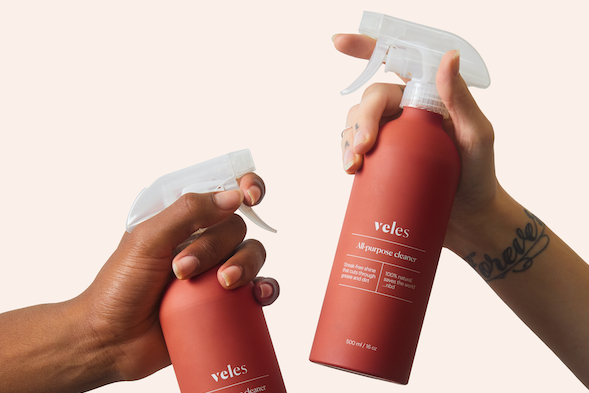
Food waste is the single largest contributor to American landfills, with estimates suggesting it accounts for 20 percent of the country's total waste stream. And while burning waste for energy and composting have increased over the past few decades, so has the amount of food that consumers and businesses throw away.
This is food that could have fed the 14.3 million American households who are at risk of food insecurity. Food ending up in landfills also wastes the resources that went into producing and transporting those items — in 2010, equivalent to $161 billion.
That’s not to mention the harm food can do by simply sitting in a landfill. While it can take an orange peel as little as six months to decompose in a landfill’s anaerobic environment, that decomposition also emits methane, a greenhouse gas even more potent than carbon dioxide. The World Resources Institute estimates that food waste contributes around 8 percent of global GHG emissions. That’s especially significant considering the third largest producer of greenhouse gases, the European Union, emits 9 percent of the global share.
What if we could recycle food that’s otherwise wasted?
If you ask Amanda Weeks, co-founder and CEO of consumer goods company Ambrosia, she'll tell you food doesn’t have to be wasted or deleterious. All of those leftovers are an opportunity to create useful products.
Over six years ago, Weeks decided to create Ambrosia to help solve the growing food waste problem. Her idea was to derive elements for consumer products from recycled food.
Back then, investors weren’t willing to take the leap with her. But even during the mid-2010s, Weeks saw a market open up. States and localities were establishing mandates for food waste. New York City, for example, enacted a law in 2013 requiring food generators to compost excess food.
Despite the lack of investor faith in Weeks’ proposal, the company’s first product is now available — Veles, an all-purpose cleaner composed mostly of extracts from food collected in New York City. The remaining 3 percent of product ingredients are essential oils for fragrance and a biodegradable plant-based fragrance stabilizer called decyl glucoside.
The world’s first commercial closed-loop cleaner
Ambrosia’s first offering is a model for other circular products to come. Veles is named after a Slavic god of nature, appropriate for a product that is closed-loop and packaged in an aluminum bottle that can be infinitely recycled.
Veles’ ingredients are minimal, and they mostly come from the compounds Weeks’ team extracts from food waste —water, acetic acid, lactic acid and alcohol. Water may be the most important element saved from this process. Ambrosia estimates that 30 million gallons of water a year can be saved if Americans buy Veles instead of a traditional household cleaner.
But this cleaning product is more than circular in nature. Veles is what the company calls “resource negative,” meaning Ambrosia does more than use recycled and recyclable materials like aluminum; it's using items that have already been discarded and finding a new use in them.
It pays to start early when creating a circular economy
Today, sustainably-minded, plastic-free, zero-waste solutions are popping up left and right. Weeks says Ambrosia’s head start has given the company an advantage, though. “There are other startups trying to do similar things that have not made it out of the lab,” she says.
And Ambrosia’s innovation doesn’t stop with stabilizing, isolating, deriving and processing useful components from food waste. The company is also developing a uniquely sustainable approach to production. Locality is the key, Weeks says: In New York, companies that haul waste bring their yield directly to Ambrosia's biorefinery, which is closer than the landfill, she told Forbes.
Weeks plans to keep her company local, even as production scales up. She envisions a biorefinery in every city with municipal food waste collection. Ambrosia has already opened a demonstration facility in New Jersey.
The long-term goal is to do more than develop products. Weeks says she wants Ambrosia’s ingredients and goods to enter large consumer products and chemicals companies to make them more sustainable. In other words: She pictures Ambrosia becoming the DuPont of the circular economy. “It’s not as fast as the traditional startup model, but it has a much bigger market and monetization opportunity,” she told us.
Ambrosia is launching its first product at a time when 66 percent of global consumers say they are willing to pay more for products that promise sustainability. Weeks sees that trend in the enthusiasm of those joining her team. Some have worked in chemicals companies their whole careers. They tell her, “This is where the industry is going.”
Ambrosia is still early to the game, though, Weeks says. “We’ve just got to hang on, continue to move the needle and continue to drive awareness.”
Image credit: Zack DeZon/Veles

Roya Sabri is a writer and graphic designer based in Illinois. She writes about the circular economy, advancements in CSR, the environment and equity. As a freelancer, she has worked on communications for nonprofits and multinational organizations. Find her on LinkedIn.














